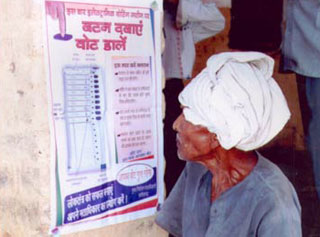Reforming the political system Back
Dr S.Y. Quraishi, former Chief Election Commissioner, takes us through electoral reforms over the years

India's biggest strengths are its democracy and elections. For its sheer size, magnitude and complexities, Indian elections are regarded as the world's biggest event managed by people. With 810 million voters, 1.4 million electronic voting machines (EVMs), 1 million polling booths, and 11 million polling officials conducting elections with credibility—this is a feat that we can be proud of.
However, issues such as criminalization of politics and the role of the money mafia in the elections pose challenges. Several criminal cases are pending against 31% of our elected representatives. For two decades, the Election Commission of India (ECI) has been demanding reforms to clean the system.
Reforms over the years
The minimum voting age was reduced from 21 to 18 years in 1989, empowering 60–70 million people per year ever since. The voting mechanism has undergone changes from candidate-specific ballot boxes to ballot papers and now, to EVMs. The provision for proxy voting for defence and paramilitary personnel and the facility for NRI voting are recent amendments.
The ECI on its part has also been initiating reforms that lie in its jurisdiction. For example, the creation of two new divisions for election expenditure control and voter education, and the introduction of a National Voters' Day (January 25). On this day, new voters are enrolled, especially those who have turned 18.
Reforms still pending
However, some serious matters still remain pending. These are:
- Debarring persons charged with heinous crimes from contesting elections if the case had been filed six months before elections.
- Stopping the blatant abuse of money power, raising the ceiling on election expenditure for political parties, ensuring a level playing field, and making paid news a criminal and electoral offence.
- Making political funding transparent—making sure every political party does all its financial transactions only by cheque, gets its accounts audited by an independent auditor from appointed by the ECI, and puts the audit report on its website.
In the absence of these reforms, the electoral atmosphere is plagued with criminals and money mafia. As a result, the public image of politicians has worsened to a great extent. This is eroding the moral authority of the political class, the legislature and the government. This image also creates voter apathy and low voter turnout.
Strengthening democracy
These long-pending electoral reforms need to be introduced without further delay to check the decline of our democracy. People, especially the youth, should proactively participate in voting. If we ensure that tainted candidates do not contest elections, the abuse of money power is controlled and citizens turn out in large numbers, we can make the world's largest democracy the world's greatest democracy.
Dr S.Y. Quraishi is the former Chief Election Commissioner of India.